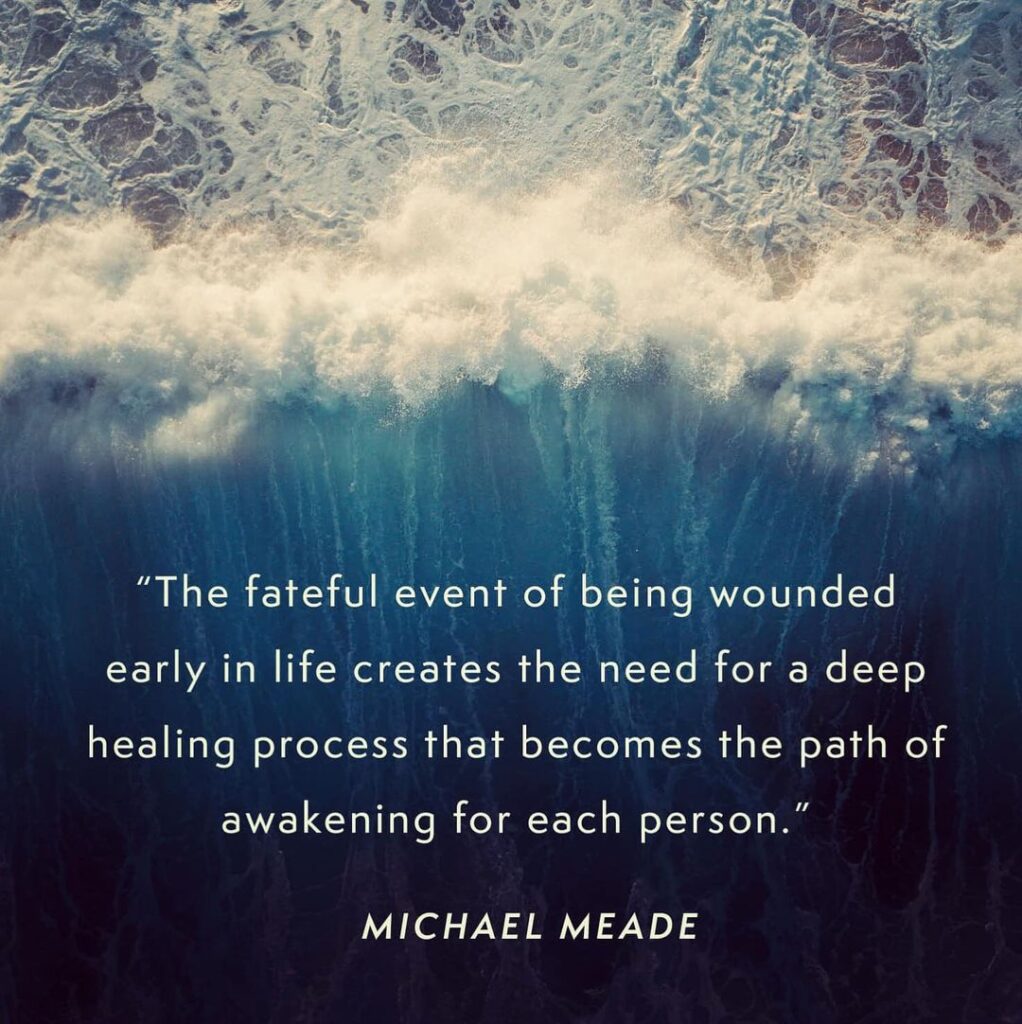
“As people are learning all over again in the modern world, when people who will not acknowledge their own woundedness are given power, they will make new wounds and possibly wound everyone because of their need to deny their own woundedness. The word heal means to cure and specifically to make whole. It turns out that being a whole person means we have to accept our vulnerable parts, and that we have to accept and learn to face our original inner wounds. For in this old, mythological understanding, the fateful event of being wounded early in life creates the need for a deep healing process that becomes the path of awakening for each person.
The path of the wounded healer leads to a connection to the deep self within, which is our connection to wholeness, which is the root of the human capacity to heal. There’s an old idea that says that in the same way that something greater than ourselves wounds us early on, something greater than ourselves seeks to awaken through the specific wounds we carry. In that sense, denying the inner wound means also denying the presence of the deep soul or the centering self, which holds the exact medicine we are looking for.
In some mythic stories, the wound inside a person is called the sacred affliction, or the holy wound. There’s another play on words in which the wound which can be seen as a hole, can also be seen as a holy element that secretly holds the natural antidote, the inner medicine that we also brought to life.
The wounded healer is ever wounded, and ever able to find ways of healing. It’s an archetypal condition. The point has never been to become perfect, or perfectly healed, or completely whole. The point has always been to become holy. That is to say, complete with our vulnerabilities and our wounds, because the wound becomes a womb from which we are intended to be reborn again and again. And that’s why the old saying was, the afflicted are holy.”
– Michael Meade